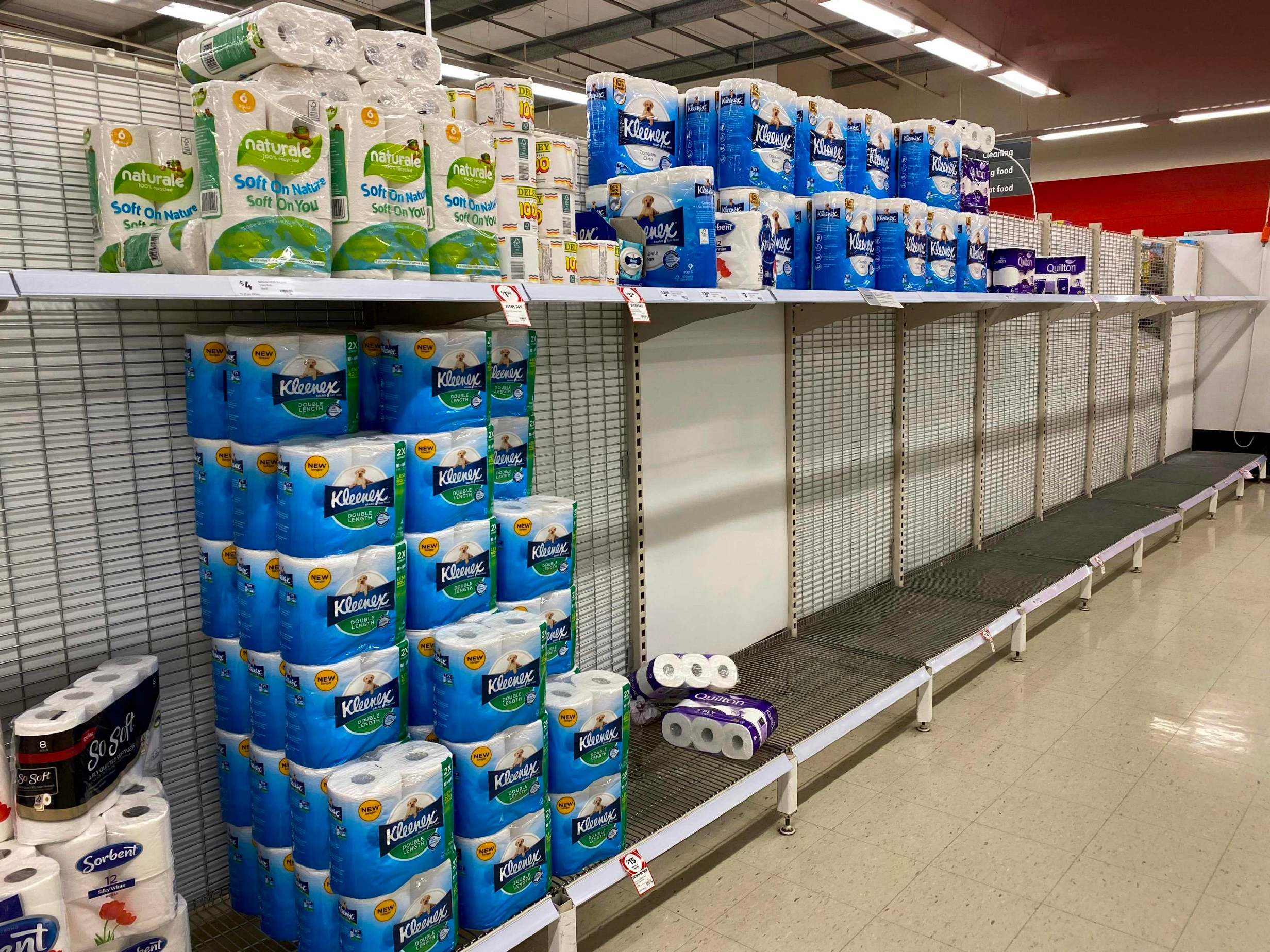Australian supermarkets limit toilet roll sales amid panic-buying, as country eases coronavirus lockdown despite spike in cases
New cases in state of Victoria are in double digits for tenth consecutive day

Your support helps us to tell the story
From reproductive rights to climate change to Big Tech, The Independent is on the ground when the story is developing. Whether it's investigating the financials of Elon Musk's pro-Trump PAC or producing our latest documentary, 'The A Word', which shines a light on the American women fighting for reproductive rights, we know how important it is to parse out the facts from the messaging.
At such a critical moment in US history, we need reporters on the ground. Your donation allows us to keep sending journalists to speak to both sides of the story.
The Independent is trusted by Americans across the entire political spectrum. And unlike many other quality news outlets, we choose not to lock Americans out of our reporting and analysis with paywalls. We believe quality journalism should be available to everyone, paid for by those who can afford it.
Your support makes all the difference.Australian supermarkets have restricted toilet roll sales after a new bout of panic-buying, as the country continues to ease its coronavirus lockdown despite a spike in infections in its second-most-populated state.
Despite assurances from prime minister Scott Morrison that Australia’s coronavirus curve is “flat”, the country’s largest supermarket chain, Woolworths, on Friday introduced a two-pack limit on toilet paper and kitchen towels across all of its stores.
Claire Peters, managing director of Woolworths’ supermarkets division, said the company was “taking preventative action now to get ahead of any excessive buying”.
Earlier in the week, the chain introduced purchase restrictions on items including hand sanitiser, pasta, mince, eggs and rice in its Victoria stores.
Coles, another supermarket chain, said customers would be limited to buying one pack of toilet paper and one pack of kitchen roll in its stores nationwide from Friday.
In March, Australia’s major supermarkets put strict limits on such purchases as shoppers stripped shelves amid fears of a coronavirus lockdown.
The latest case of panic-buying was sparked by a surge in Covid-19 infections in Victoria.
The state, which has about 200 of Australia’s 270 active infections, has recorded 10 consecutive days of double-digit new cases.
Mr Morrison branded the panic-buying “ridiculous” and urged people to stop, 9 News reports.
“I’m sure it will pass as it did last time and there’s no need for it,” he said following his National Cabinet address on Friday.
Although authorities are working to stop the spread of the virus through a mass testing programme, Mr Morrison announced on Friday that all states and territories would remove social distancing restrictions in the near future.
“All states are committed to continue on with the various plans that they have and they’re making,” the prime minister said in Canberra.
Mr Morrison added: “There will be outbreaks and what matters is that we continue to build our capability to deal with those outbreaks.”
His comments came as Australian federal and state leaders met on Friday to discuss the nation’s coronavirus strategy, one day after Australia saw its largest one-day rise in Covid-19 cases for more than two months.
The government is aiming to remove most social distancing restrictions by the end of July, but the decision on how quickly to lift them will be left up to each state and territory.
However, Australia will be increasing requirements on citizens returning from abroad, who are permitted to go home while the country’s international borders remain closed.
Brendan Murphy, the country’s chief medical officer, said: ”We are going to start testing people on entry to quarantine and testing people before they leave quarantine.”
Australia currently requires locals coming back from overseas to spend two weeks in quarantine. However, the deputy chief medical officer of Victoria said that roughly 30 per cent of those who have returned to the state declined to be tested for coronavirus before leaving quarantine.
Australia has so far recorded around 7,500 coronavirus infections and 104 deaths from the virus, figures which are far lower than in many other countries.
Additional reporting from Reuters
Join our commenting forum
Join thought-provoking conversations, follow other Independent readers and see their replies
Comments